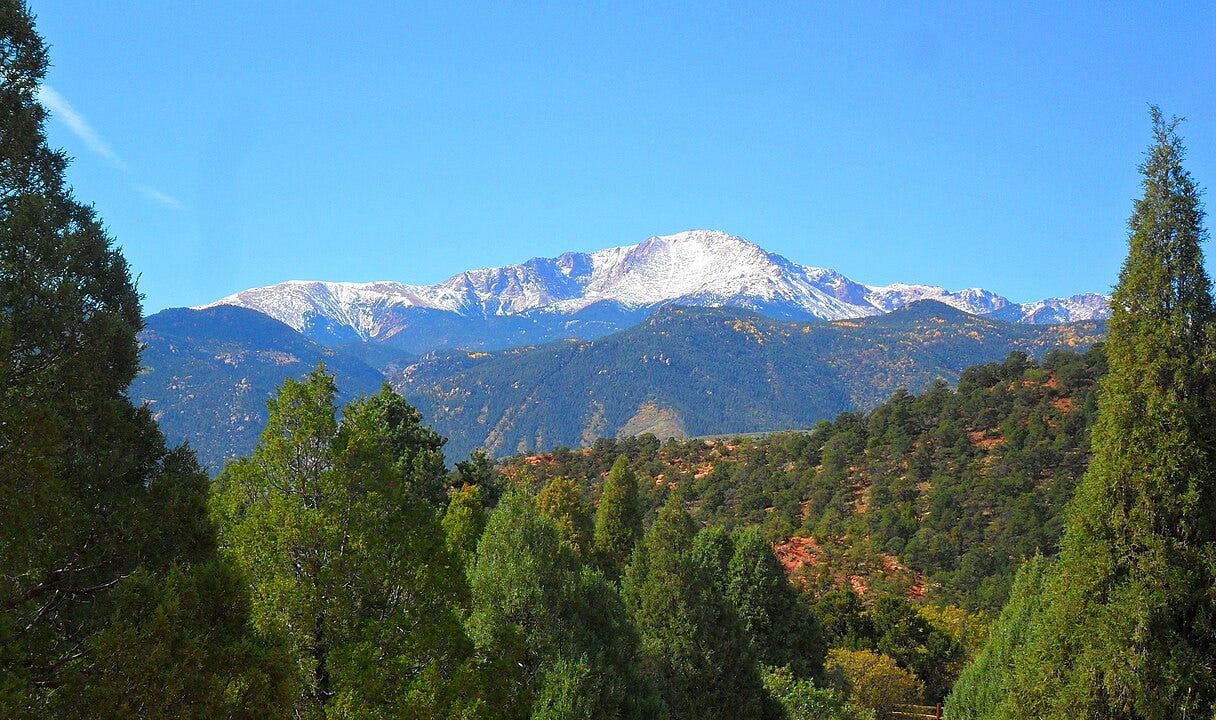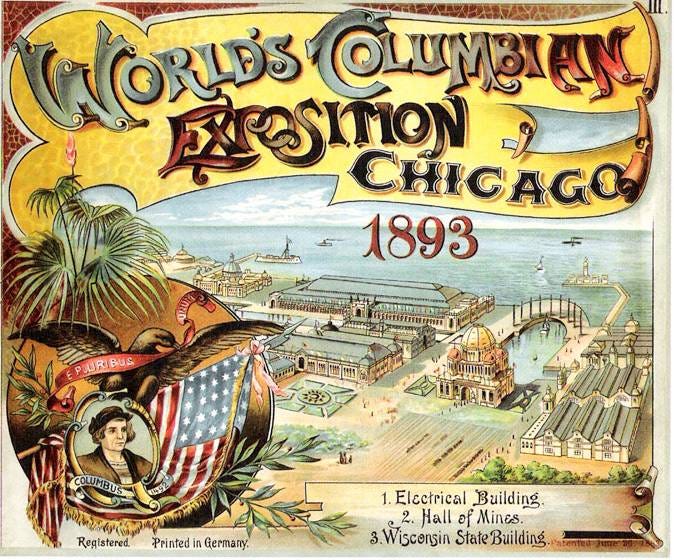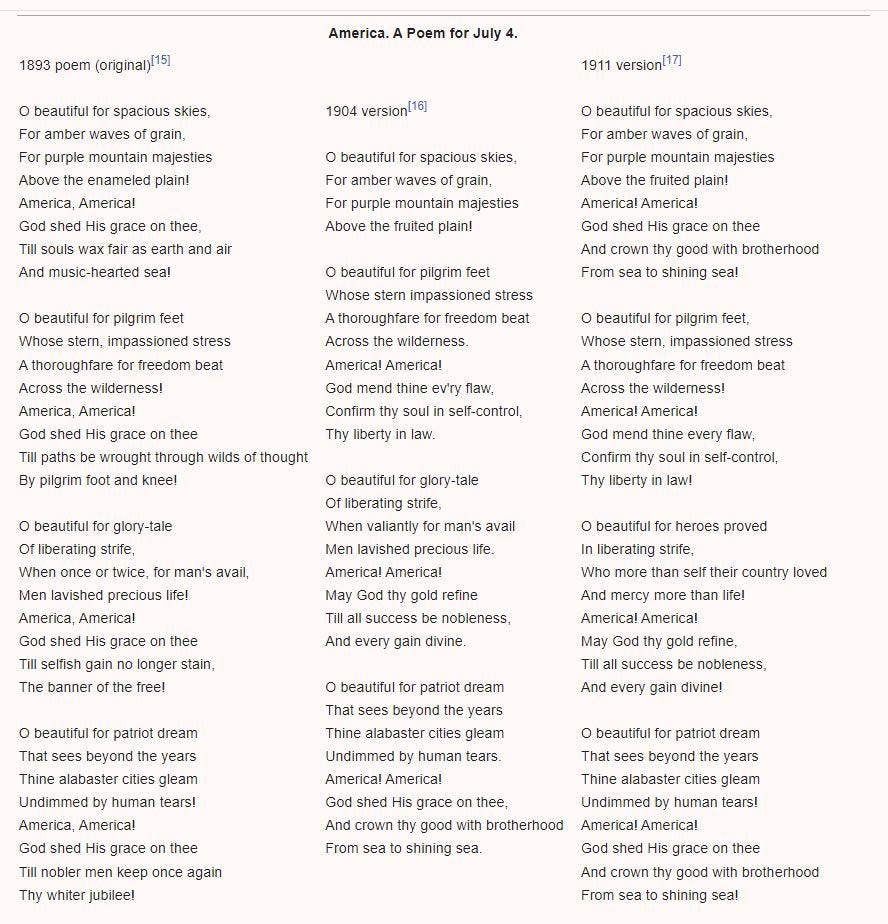Red, Blue and Eroded: America the Beautiful and the Great Divide
As a nation, the USA is wallowing in decades of distrust, misinformation and manipulation
America is big, beautiful and eroded.
After spending two months back home this summer, the majesty of the American landscape is irrefutable.
However, the character of the nation is suspect.
The presidential election of 2024 looms on the horizon like a gathering storm ready to pelt the populace with hailstones.
After the votes are tallied, it’s going to be messy.
That’s because both the red and blue halves of American voters are not ready for the opposite outcome.
America the ugly is a reality and set to pounce.
It’s time to look back at the origin story of one of America’s greatest songs: America the Beautiful.
The Great American Road Trip
In 1893, America was still bursting from its seams.
The nation was flourishing in commerce and movement inward from the dominance of its coastal borders.
Many of the country’s inhabitants were curious to see the broader terrain hidden from view in the vast interior.
An English professor, Katharine Bates, set off by train from Massachusetts to Colorado for a new teaching job.
Like any good trip across America, Ms. Bates got inspired along the way. For example:
the golden wheat fields of Kansas
the Rocky Mountain skyscrapers of Colorado
the Great Plains land ocean from atop Pikes Peak
World’s Columbian Exposition pavilions in Chicago, Illinois

When Katharine Bates penned the original poem (called Pikes Peak, then published as America in 1895), she had no clue it would become a classic song.
In 1910, a New Jersey church organist, Samuel Ward, laid down the musical melody and set the song free as a patriotic tribute to the emerging nation.
Even now, America the Beautiful is beloved more than the Star-Spangled Banner.
The song is actually a wonderful counter-sentiment to the wartime glory of the official national anthem.


Reflecting a National Archetype
Everyone can sing at least the first stanza of America the Beautiful.
O beautiful for spacious skies, For amber waves of grain, For purple mountain majesties Above the fruited plain!
But what about the rest of the song. What are most of us missing from this 100 year-old message from our past selves?
A closer examination lets us know that the first and second stanzas are pure Americana. Here is the second stanza:
O beautiful for pilgrim feet, Whose stern, impassioned stress A thoroughfare for freedom beat Across the wilderness!
Of course, this narrative is from the point-of-view of the victorious: The United States Calvary.
There is gap in the story. The wilderness was full of indigenous Americans. Somehow the fruited plain obscured this aspect from the pilgrims.
Songs are a sign of the times. And these early pioneering days were seen as the hardscrabble spirit of those forging a nation, not those who unfortunately got in the way.
Nobody knows what is said in the third and fourth stanzas of the song. But it is a deeper look into the psyche of the American Way.
O beautiful for heroes proved In liberating strife, Who more than self their country loved And mercy more than life!
This poem was written before World War I.
So the reference to “heroes in liberating strife” can be assumed to be all the wars fought to clear out the remaining occupiers: Britain, Mexico, the Confederacy and the American Indian Wars.
American history follows the exploits of the war machine. This axiom holds true for past and present.
I am not trying to revise history or present a woke interpretation of historical events. I just want to gain some insights into the turn-of-the-century American mindset.
From the perspective of a songwriter, nonetheless.

Coda
Patriotic songs and protest songs need to have one commonality. Hope.
It is tough to fight the good fight without some measure of success, that the struggle is not in vain.
What is really striking about America the Beautiful is how the chorus captures the real essence of the American persona.
America! America! God mend thine every flaw, Confirm thy soul in self-control, Thy liberty in law!
What a summary statement!
In the current Red Team-Blue Team divide, Americans only see the flaws in the other side.
There is no self-control on Twitter/X, Facebook, YouTube or the mainstream newspapers and news channels. It’s an absolute shit show of arrogance, anger, impatience and emboldened hatred.
So will the 2024 Presidential Election and its aftermath test the true calling of the American Spirit?
And will “Thy liberty in law” prevail?
Bates and Ward gave us a wonderful gift, full of natural beauty, human humility and sacrifice, a purpose beyond our selfish selves and even hope for the future.
Let’s not fuck it up.
===============
If you like the songs and/or essays, please help me distribute them by sharing and following me on Twitter/X, Substack and now YouTube.
I appreciate your time and support in this endeavor.




